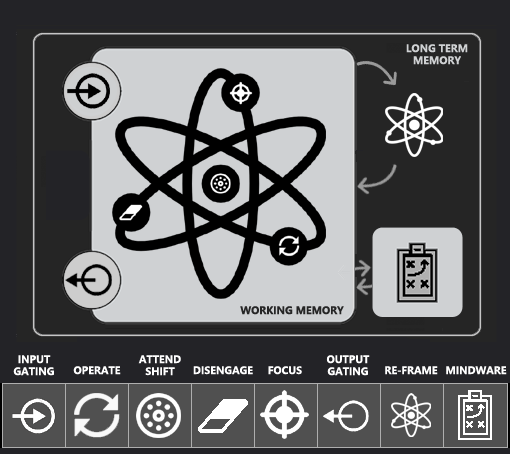Effective Brain Training : Core Processes
Well-designed brain training apps target the the ‘atomic’cognitive functions and processes within our brain’s ‘central processor’ – sometimes called executive processes. These core functions are shown in the ‘core processes’ model below. They are trained selectively with your i3 Mindware app.
.
Working memory (the light grey box) is our mental workspace – the information we can hold in mind at any given moment in time to reason, solve problems, make decisions, comprehend and learn. Input gating is what information our attention selects for this workspace, focusing, operating and disengaging is what we do with the information in the workspace under attentional control (attention shift), and output gating is what we make use of from this information processing to guide our decisions and actions. Re-framing is our ability to flexibly change tasks, rule-sets and perspectives. Mindware is the rules and strategies we make use of to guide our thinking.
.
.
Fluid Intelligence (Gf)
i3 Mindware is designed to target different elements for different cognitive benefits. Here we’ll looking at settings that target fluid intelligence (Gf) – a measure of IQ. Fluid intelligence is our ability to see relationships, abstract concepts, reason and problem solve in new situations. It helps us learn rapidly, think critically and innovate. It is not the same as our learned knowledge and skills, but it enables us to more efficiently build on our our existing knowledge-base.
.
Fluid intelligence is measured by the matrices IQ tests in your HRP Track testing app. To maximize your chances of getting a 10-20 point IQ gain, we recommend you use these settings if you can.
.
.
How to Train For Fluid Intelligence (Gf) Gains
Fluid intelligence is the ‘hub’ of the different ‘broad abilities’ of intelligence measured by IQ tests and other types of cognitive performance test – as shown here.
.
Fluid intelligence processes overlap with all the other types of ‘multiple intelligence’. If your training results in neuroplasticity changes in fluid intelligence (Gf) you are training the core network of your overall intelligence.
.
.
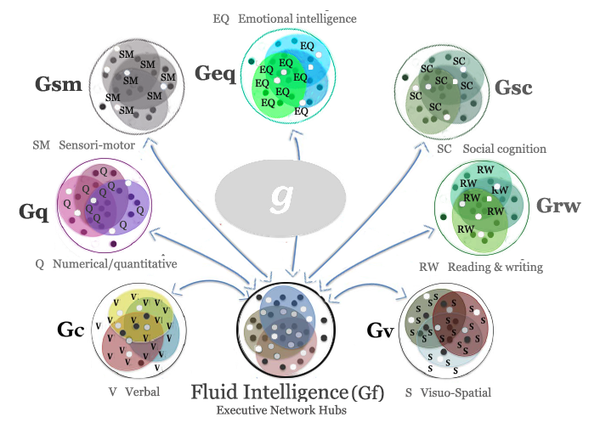
.
The Gf Challenge!
This month’s challenge is to try to complete at least 20 sessions of training on with the following settings to improve your fluid intelligence (Gf). Once you have completed 20, you should be motivated to continue and complete your training session.
.
I am assuming that you have first reached at least a 2-back level with the classic dual n-back game mode. This is essential background practice for this challenge.
.
.
Training Setting 1
First select at least 1G mode (you could also try 2G or 2G+, but what is critical for this challenge is at least 1G which trains working memory output gating as show in the ‘core process’ model above. (Note that you can also select 2G which additionally trains input gating as well as 2G+ which trains your ability to switch rapidly between rules-sets.)
.
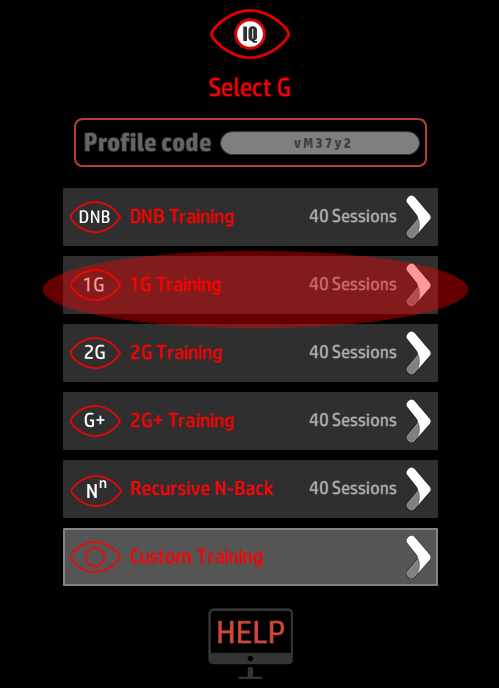
.
Working memory output gating mechanisms (in your prefrontal cortex) are critical for learning and applying complex, context-dependent rules – processes that are central to Gf.
.
“output gating is specifically at the root of the developmental change in higher order rule use…..training-induced increase in cognitive flexibility is… mediated by more efficient output gating of abstract rule representations that support generalization, learning and fluid reasoning.” Unger and colleagues, 2016
.
Training Settings 2 & 3
Next – switch on the interference control and hand switching options, shown below. These enable you to selectively train disengaging in the cognitive elements model above.
.
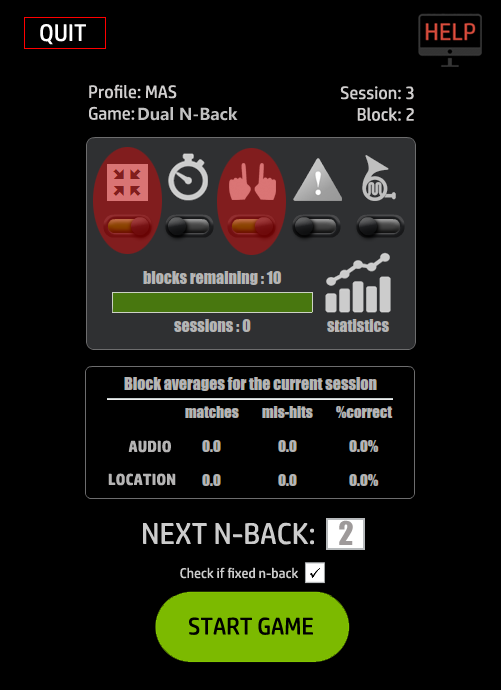
.
Applying fluid intelligence can be though of as ‘offline’ reasoning and hypothesis testing – such as when you solve matrices IQ tests, and you try to figure out the underlying rules in the patterns.
.
“In the realm of problem solving (Gf), high working memory capacity allows a person to represent and maintain a problem accurately and stably, so that ‘hypothesis testing’ can be conducted. However, as hypotheses are disproven or become untenable, disengaging from outdated problem solving attempts becomes important so that new hypotheses can be generated and tested.” (ref)
.
In terms of the core processes model above, working memory capacity depends relatively more on the focus function while fluid intelligence depend relatively more the on the disengagement function – e.g. clearing from your mind any hypotheses that you have thought through but ruled out as you think through a problem.
.
This is shown in the diagram from this 2018 review of working memory and fluid intelligence below:
.
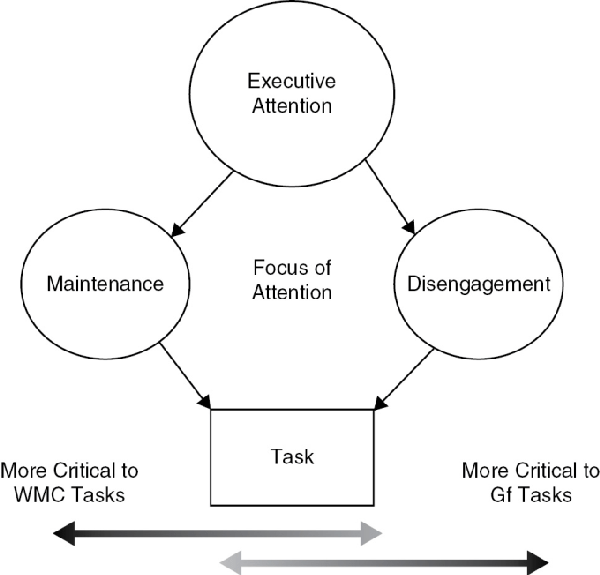
.
.
i3 Mindware Coaching
If you are interested in a coaching session to get your training on track, please look (and book online) here.


